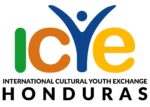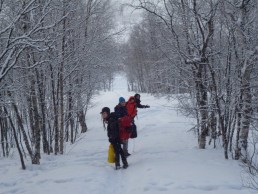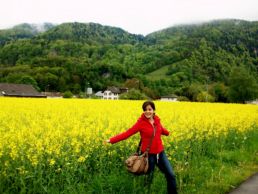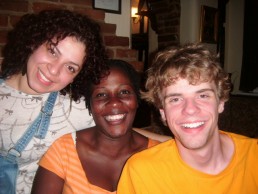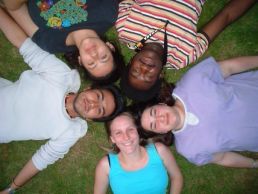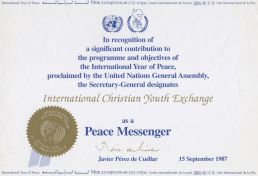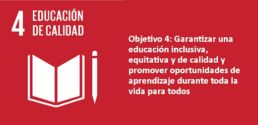¡Viví en diversas culturas y apoyá proyectos y movimientos sociales!
SÉ PARTICIPANTE ICYE - BE AN ICYEr!
ICYE Honduras facilita programas de intercambio internacional con experiencias de aprendizaje intercultural para participantes, fomentando su desarrollo personal, dándoles oportunidades para vivir en culturas diversas y realizar servicio voluntario apoyando proyectos sociales durante estadías cortas (4-16 semanas) y estadías largas (6 meses – 1 año) en más de 40 países alrededor del mundo.
¡Sé parte de esta experiencia única que ampliará tus horizontes y oportunidades!
+40 países
Viví, compartí y crecé en una comunidad en África, Europa, América o Asia-Pacífico.
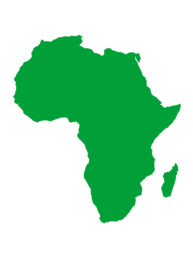
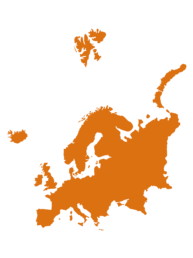
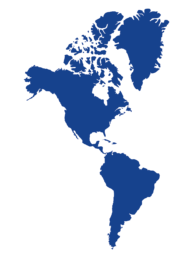
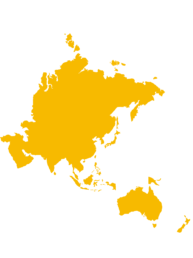
VIVÍ EN EL EXTRANJERO Y DESARROLLÁ LA COMPETENCIA INTERCULTURAL
Personas de cualquier país y a partir de los 18 años de edad son elegibles para participar en los programas de intercambio internacional ICYE. No se requiere experiencia previa, sólo energía, entusiasmo y motivación para hacer frente al desafío de adaptarse en un nuevo ambiente, así como aprender más sobre sí misma y el mundo en el que vivimos.
Nuestros programas están compuestos por varios elementos:
- Aspectos de traslado a nuevos países, tal como la documentación necesaria para aplicar a visas, asignación de un hogar, facilitación de comida, entre otros.
- Proceso de capacitaciones interculturales para prepararse, adaptarse y desenvolverse positivamente en nuevas culturas.
- Apoyo y asistencia en la coordinación de la movilidad internacional por parte del equipo ICYE antes, durante y después de toda la experiencia en el extranjero.
Mediante la participación activa en cualquiera de nuestros programas y la inmersión en culturas diversas, desarrollarás la competencia intercultural, la cual es esencial en nuestro mundo globalizado, interconectado y multicultural.
Seguirás un proceso de capacitación para adquirir conocimiento, habilidades y actitudes específicas y generales para convivir con culturas diversas, necesarias para el entendimiento intercultural.
DESARROLLÁ HABILIDADES Y COMPETENCIAS
Un elemento esencial de todos nuestros programas es que sus participantes realizan un servicio voluntario a tiempo completo en un Proyecto ICYE.
Los más de 800 Proyectos ICYE a nivel mundial son organizaciones e instituciones independientes que apoyan personas en situaciones vulnerables, actividades ambientales y acciones animalistas en los países donde coopera ICYE.
El servicio voluntario reforzará tu experiencia de vida, lo aprendido en tu formación académica y profesional con nuevas habilidades, competencias y herramientas útiles, para incrementar tus perspectivas de empleo, emprendimiento y educación.
Dominio del inglés y otros idiomas
Ciudadanía global
Pensamiento crítico
Creatividad
Resolución de problemas
Trabajo en equipo
Inteligencia emocional
PROYECTOS ICYE
Durante la experiencia en el extranjero se apoyan personas en situaciones vulnerables, acciones ambientales o actividades animalistas. Se puede elegir desarrollar el servicio voluntario entre diferentes temas de Proyectos:
- Educación para la niñez y juventud
- Asistencia en salud
- Apoyo a personas con discapacidades
- Residencias para personas ancianas
- Personas sin hogar, migrantes y refugiadas
- Protección del medio ambiente y animales
- Fomento del turismo social, la cultura y los deportes
- Defensa de los derechos humanos
- Entre otros…
Los Proyectos ICYE varían por país, estadía y se asignan según la disponibilidad del país hospedero.
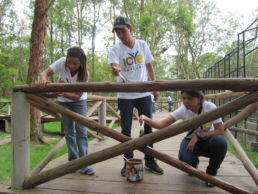
+70 años en el movimiento del servicio voluntario internacional (IVS)
+1,200 participantes anualmente
+800 Proyectos donde hacer servicios voluntarios
ASOCIACIÓN DE INTERCAMBIO INTERNACIONAL CULTURAL DE JÓVENES
ICYE (International Cultural Youth Exchange) fue fundada en 1949, organizando intercambios con estadías que combinan vivir en una familia o proyecto y hacer servicio voluntario, dando oportunidades que ayudan a las personas a romper prejuicios y desarrollar la competencia intercultural para un mundo más justo y pacífico.
ICYE promueve:
- Experiencias de aprendizaje intercultural desafiantes.
- El desarrollo social y personal de sus participantes mediante programas de servicio voluntario internacional.
- El entendimiento intercultural, igualdad de oportunidad, inclusión y paz entre las personas en el mundo.
ICYE Honduras está reconocida como organización cultural y sin fines de lucro por la República de Honduras desde 1984, y colabora con:


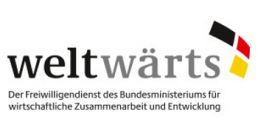
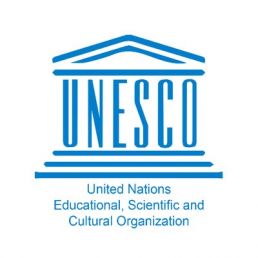
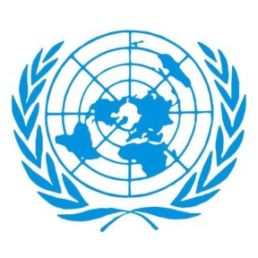

[fts_facebook type=page id=462796467188068 access_token=EAAP9hArvboQBAFoVZBLp2stJ9Xx3wns92RGY3N5ux1ZCm1sP16ucmU4lDpOcZA3ZAcpHhCzDrpzeZBZC09Ea1wnLcDdqLpMAYGPZAOZBLZA32Xf2HTvfZCYSZA3Ox46WtzMoNLWTTvnZAKgO1aZC0L1IGflM9qpVMp6uRO63m0QhaHldvTLdPfKgpxe5WiiFRwQzU1jwZD posts=1 description=no posts_displayed=page_only]
Gabriela, ICYEr de Honduras en Suiza 2008
"El voluntariado a través del intercambio cultural cambió mi perspectiva de vida, me ayudó a crecer como persona y a conectarme con los demás de maneras inimaginables."

